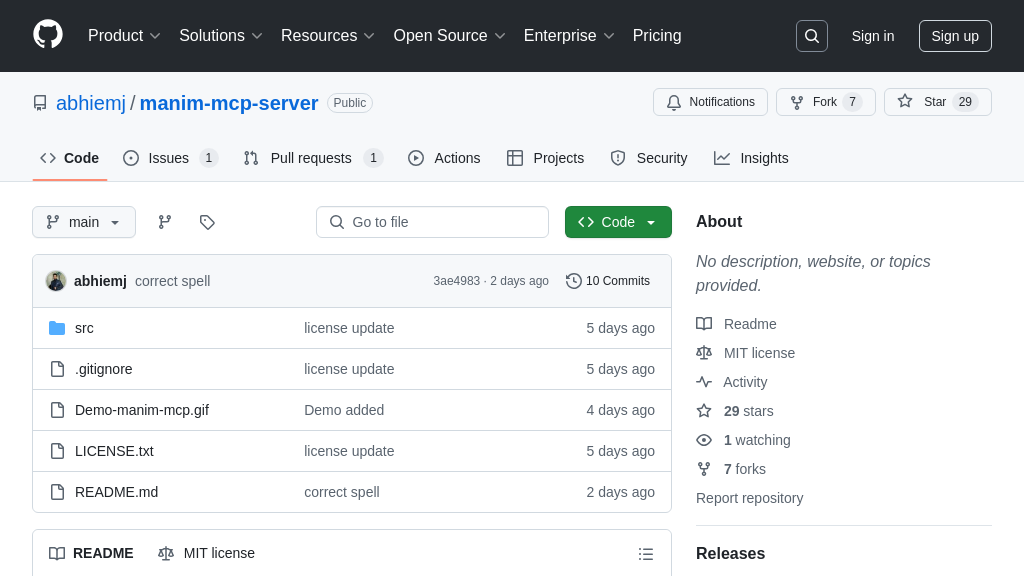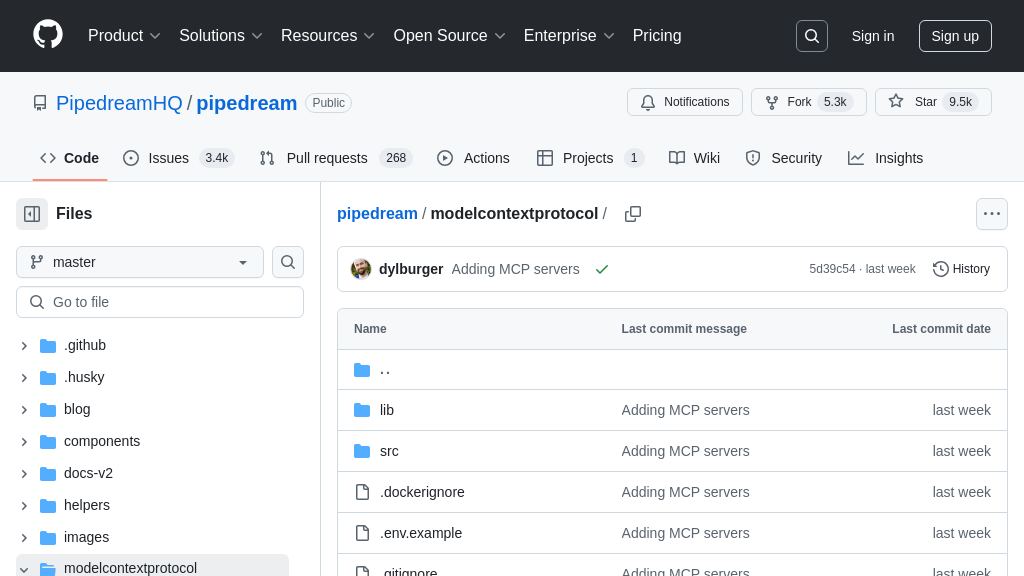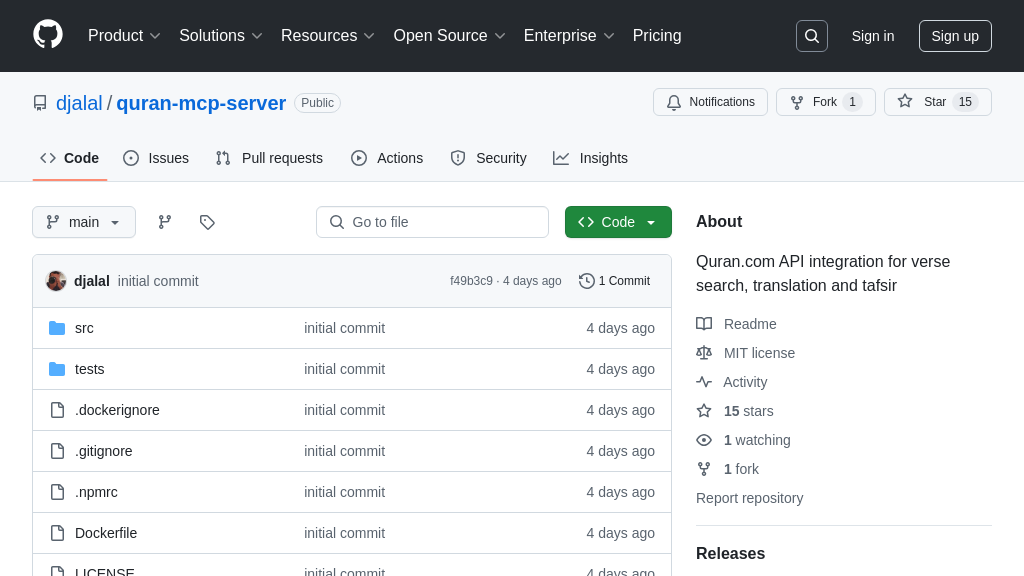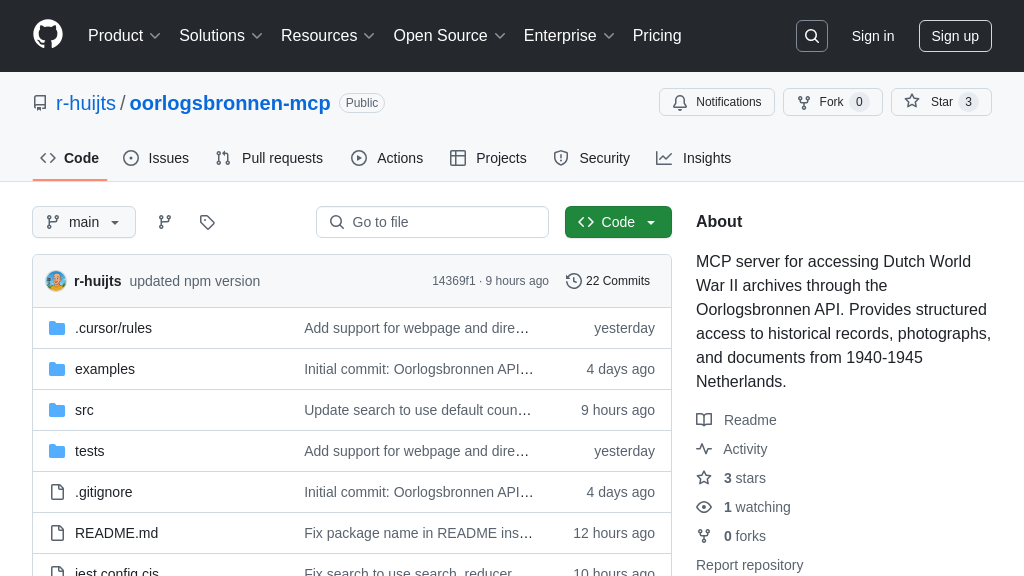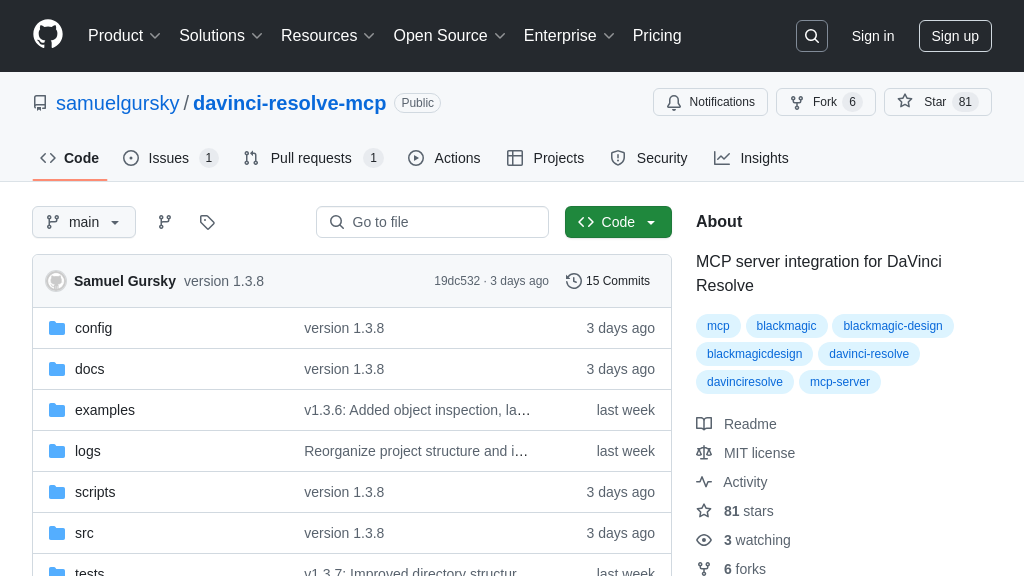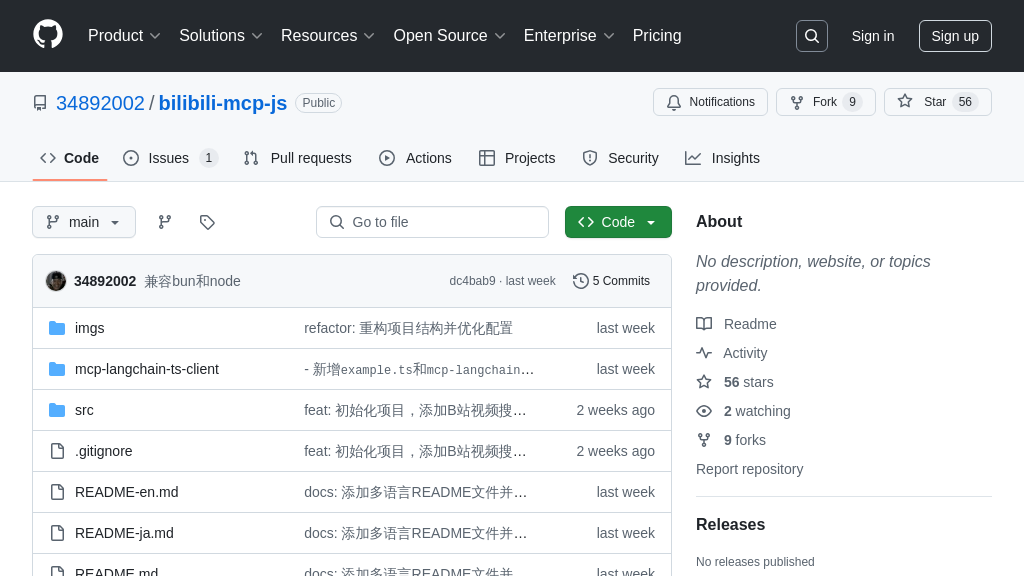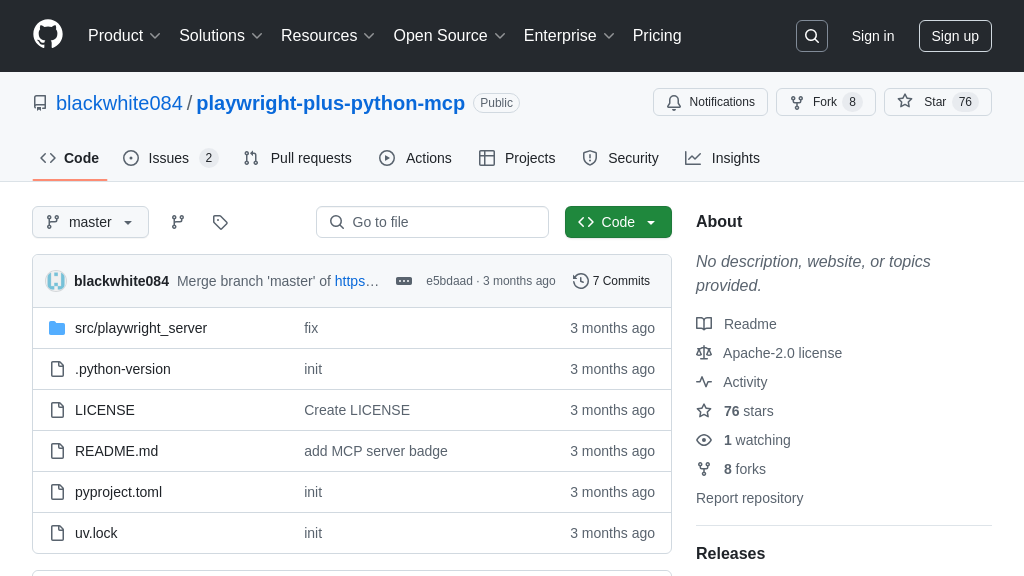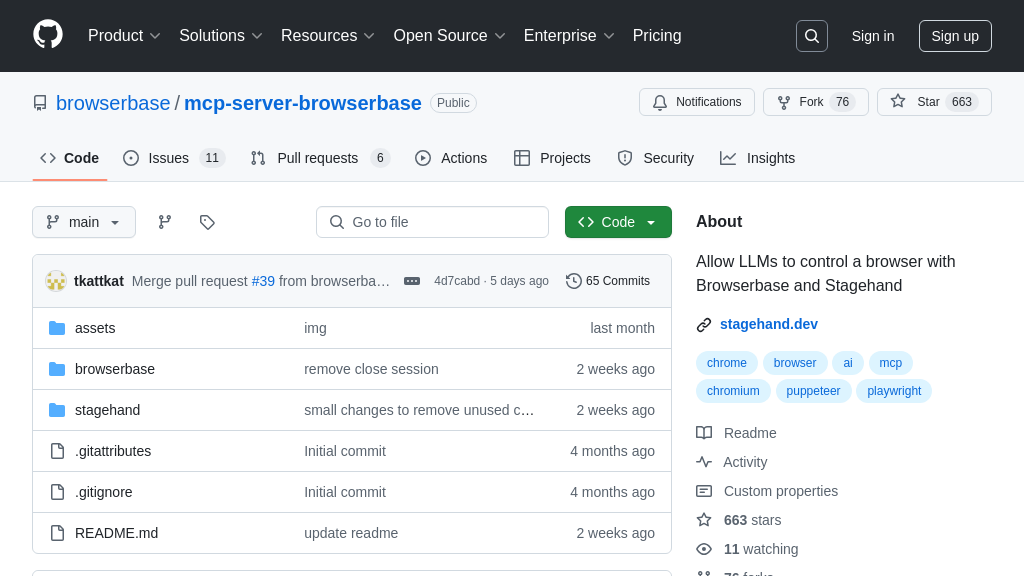jira-mcp-server
Jira MCP Server: Securely connect AI models to Jira for automated workflows. Execute JQL queries, manage tickets, and more!
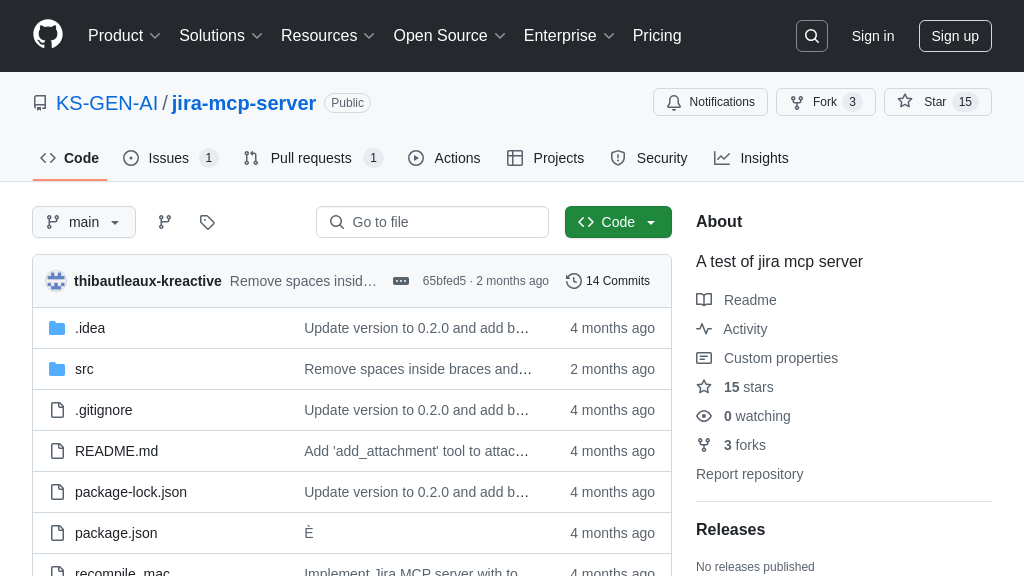
jira-mcp-server Solution Overview
Jira MCP Server is a TypeScript-based MCP server designed to facilitate seamless interaction with Jira. As an MCP server, it empowers AI models to securely connect and interact with Jira instances, automating workflows and enhancing decision-making. Key features include tools for executing JQL queries, creating, editing, and deleting Jira issues, and listing projects and statuses.
This server enables AI models to automatically create Jira tasks based on analysis, retrieve information for training or decision-making, and prioritize/assign tasks intelligently. By integrating with Claude Desktop via a simple configuration update, developers can quickly leverage these capabilities. The server utilizes standard input/output for communication, with a provided MCP Inspector tool to simplify debugging. Jira MCP Server streamlines the integration of AI with Jira, unlocking powerful automation and insights.
jira-mcp-server Key Capabilities
JQL Query Execution
The execute_jql tool is a core feature of the jira-mcp-server, enabling AI models to retrieve specific information from Jira using Jira Query Language (JQL). This tool allows AI to dynamically query Jira based on various criteria, such as issue type, status, assignee, and creation date. The tool takes a JQL query string as input and returns a specified number of results. This functionality is crucial for AI-driven analysis and decision-making, as it provides access to real-time project data stored within Jira. For example, an AI model could use execute_jql to identify all open bugs assigned to a specific developer in a project, allowing it to prioritize tasks or identify potential bottlenecks. The underlying implementation involves constructing a Jira API request with the provided JQL query and parsing the response to extract relevant issue data.
Automated Ticket Management
The create_ticket, edit_ticket, and delete_ticket tools provide comprehensive ticket management capabilities within Jira. The create_ticket tool allows AI models to automatically generate new Jira issues based on predefined criteria or analysis results. For instance, an AI-powered monitoring system could automatically create a Jira ticket when it detects a critical error in a production environment. The edit_ticket tool enables AI to modify existing Jira issues, updating fields such as summary, description, and labels. This could be used to automatically add context to a ticket based on AI analysis of related logs or data. The delete_ticket tool allows AI to remove Jira issues, which could be useful for automatically cleaning up duplicate or obsolete tickets. These tools empower AI models to actively manage the Jira workflow, reducing manual effort and improving efficiency. The implementation involves constructing and sending appropriate Jira API requests to create, update, or delete issues.
Project and Status Retrieval
The list_projects and get_all_statuses tools provide AI models with the ability to retrieve metadata about Jira projects and issue statuses. The list_projects tool returns a list of available Jira projects, allowing AI to dynamically identify and interact with specific projects. This is useful for AI-driven project management and reporting. For example, an AI model could use list_projects to generate a summary of all active projects in a Jira instance. The get_all_statuses tool retrieves a list of all possible issue statuses in Jira, enabling AI to understand the current state of issues and track their progress. This is valuable for AI-powered workflow automation and analysis. For example, an AI model could use get_all_statuses to identify all issues that are currently in the "In Progress" status. The implementation involves querying the Jira API for project and status information and formatting the results for use by AI models.
User Assignment Automation
The assign_ticket and query_assignable tools facilitate automated user assignment within Jira. The query_assignable tool allows AI to identify users who can be assigned to a specific project. This is useful for dynamically determining the appropriate assignee for a new issue based on project context and user availability. The assign_ticket tool then assigns a specific user to a Jira issue. This could be used to automatically assign issues to users based on their skills, workload, or availability. For example, an AI-powered task management system could use these tools to automatically assign incoming support requests to the most appropriate available agent. The implementation involves using the Jira API to query for assignable users and then assigning the selected user to the specified issue.
Attachment Management
The add_attachment tool enables AI models to add attachments to Jira issues. This is particularly useful for providing context and supporting information to issues. For example, an AI-powered monitoring system could automatically attach relevant log files or screenshots to a Jira ticket when it detects an error. The tool takes the issue ID or key and the URL of the attachment as input. This allows AI to dynamically add attachments from various sources, such as cloud storage or internal systems. The implementation involves using the Jira API to upload the attachment to the specified issue.
